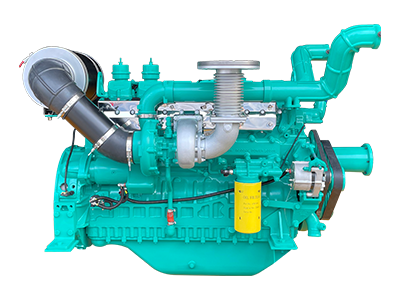- HOME
- ABOUT GOOGOL
- PRODUCTS
DIESEL ENGINE
GENERATOR SETS
- DOWNLOAD
- CASES
- NEWS
- CONTACT US
DIESEL ENGINE
GENERATOR SETS

Blue smoke emission from diesel engines is a common fault phenomenon, which is usually related to abnormal oil entering the combustion chamber and participating in combustion. The following is an analysis of the causes of blue smoke from diesel engines and a comparison with the causes of black smoke:
Reasons for Blue Smoke from Diesel Engines
Excessive oil: When the oil level exceeds the specified limit, excess oil may splash onto the cylinder wall and enter the combustion chamber through the gap of the piston ring, causing blue smoke emissions.

Piston ring problem: Damage, breakage, severe wear, or improper installation (such as misalignment, insufficient elasticity, incorrect direction, etc.) of the piston ring may lead to a decrease in its sealing effect, causing oil to enter the combustion chamber.
Oil ring blockage: If the return oil hole on the oil ring is blocked by carbon deposits, it will lose its oil scraping function, causing the oil to be unable to be effectively scraped off and flow back, and then enter the combustion chamber.
Poor running in between cylinder and piston group: In new or repaired vehicles, insufficient running in between cylinder, piston, and piston ring may result in incomplete oil scraping, leading to blue smoke. But this situation usually disappears on its own after the break in period.
Valve guide oil seal failure: Improper assembly or aging of the valve guide oil seal can lead to seal failure, and engine oil may enter the combustion chamber through the valve cover.
Comparison with the reasons for emitting black smoke
The black smoke emitted by diesel engines is usually related to insufficient combustion caused by a rich mixture, and the main reasons include:
Air filter blockage: Poor intake leads to a decrease in the amount of air entering the cylinder and an imbalance in the fuel mixture ratio.
Poor atomization of fuel injector: Poor fuel atomization effect leads to incomplete combustion.
Excessive load: Under high load conditions, the amount of fuel injected into the combustion chamber increases, while the amount of air is relatively insufficient, resulting in incomplete combustion.
Summary: The reasons for blue smoke and black smoke in diesel engines are not exactly the same. Blue smoke is mainly related to abnormal oil entering the combustion chamber, while black smoke is related to incomplete combustion caused by excessive mixture. Therefore, different methods and measures need to be taken when diagnosing and resolving these two types of faults.